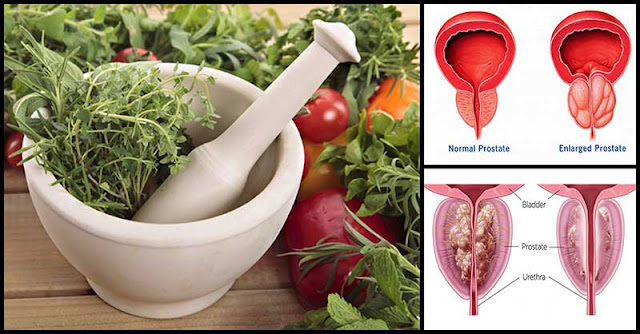The prostate gland, which is found in the human male body, is responsible for two important functions – urination and physical intercourse (it helps produce semen). As men get older (usually between the age of 40 to 60 years old), the prostate gland can become enlarged, a condition known as benign prostatic hyperplasia, or BPH. It usually happens when prostate cells divide and multiply abnormally, thereby causing the organ to increase in size. Some other common prostate enlargement related disorders are prostatitis (inflammation) and benign prostate hypertrophy.
Some of its major signs and symptoms are as follows:
- Frequent or urgent need to urinate
- Increased frequency of urination at night (nocturia)
- Difficulty starting urination
- Weak urine stream or a stream that stops and starts
- Dribbling at the end of urination
- Inability to completely empty the bladder
- Pain in feet, hips, and legs
- Pain in the anal region, lower back just after ejaculation
Placing tremendous pressure on the pelvis can cause prostate-related disorders. Some of the contributing factors are old age, poor posture, unhygienic diet, improper lifestyle, and working culture.
A person with prostate related issues must have dietary changes to improve his/her condition. Avoid eating fatty, starchy, oily, sugary, salty, and spicy foods as well as dairy products, alcohol, and caffeine. Consume more citrus fruits, veggies, nuts, and legumes such as peas and beans. Drink some water every hour. You may also benefit from regularly adding pumpkin seeds on your meals. Also, studies have found that drinking 500 ml of carrot juice or a mixture of 300 ml carrot juice and 200 ml spinach juice can have positive effects on the symptoms.
In addition to these tips, you can try the following prostate care herbs and foods listed below.
Pine Bark
Results of various studies have revealed that pine bark has nutritional support that can help improve prostate health and support sperm quantity and quality.
Pumpkin Seed
Iron, potassium, and zinc, which are all found in pumpkin seeds, were linked to prostate health. Along with the seeds’ antioxidant action, these nutrients can help encourage normal urine flow in men with an enlarged prostate.
Stinging Nettle
This herb stimulates metabolic activity during times of lost appetite and energy, thereby aiding in ensuring prostate health. Moreover, it can help alleviate symptoms of BPH, treat hay fever and digestive weakness, and support the joints.
Pygeum Bark
For you to have normal urination, it’s necessary that you find ways on how to encourage a normal sized prostate. Present in pygeum bark are important compounds that can help you with this problem. It contains fatty acids, alcohols, and sterols such as beta-sitosterol that have an antioxidant and anti-inflammatory effect on the urogenital tract.
Tomatoes
According to the National Cancer Institute, lycopene – found in tomatoes – may help lower the risk of prostate cancer. It aids in both prostate cancer prevention and treatment. Some other sources of lycopene are papaya, watermelon, carrots, guava, red cabbage, and red bell peppers.
Shilajit
Found in Shilajit are important nutrients that can help the body combat cancer cells and cut down extra cells from the prostate.
Kachnaar (Orchid Tree)
Kachnaar has anti-inflammatory and analgesic properties that can help get rid of symptoms of prostate-related disorders.
Some strategies that may ease BPH symptoms include:
- Do some pelvic floor exercises
- Try bladder training exercise
- Manage stress
- Reduce nighttime urination by avoiding fluids at night.
- Do not carry out hard physical exercises forcefully
- Limit fluid intake to 2 liters of liquids each day
- Avoid medications that can worsen symptoms, such as antihistamines, diuretics, and decongestants if possible
- Avoid sitting in a particular position for prolonged hours









